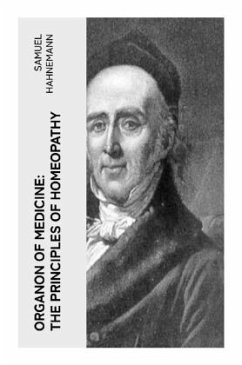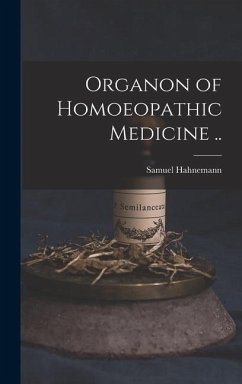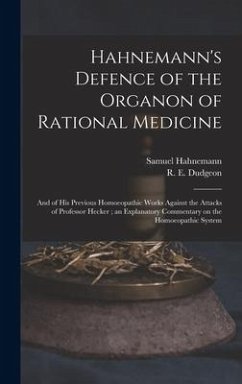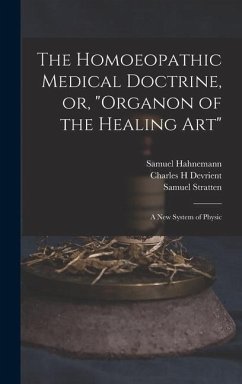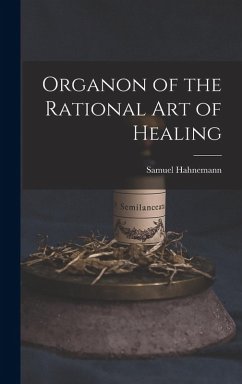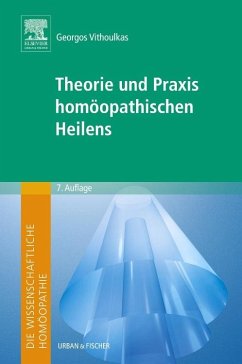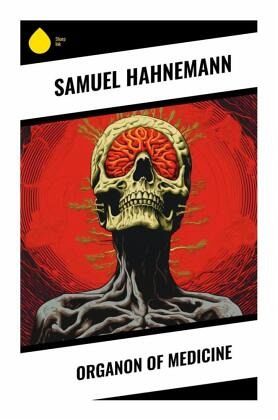
Organon of Medicine
Versandkostenfrei!
Versandfertig in 6-10 Tagen
10,50 €
inkl. MwSt.
Weitere Ausgaben:

PAYBACK Punkte
0 °P sammeln!
In the "Organon of Medicine," Samuel Hahnemann meticulously lays the foundation of homeopathic medicine, presenting an innovative approach that diverges sharply from conventional medical practices of the early 19th century. Through a combination of philosophical exploration and empirical observation, Hahnemann articulates the core principles of homeopathy, emphasizing the law of similars and the concept of potentization. His literary style is succinct yet profound, employing a didactic tone that invites rigorous intellectual engagement while remaining accessible to practitioners and laypersons...
In the "Organon of Medicine," Samuel Hahnemann meticulously lays the foundation of homeopathic medicine, presenting an innovative approach that diverges sharply from conventional medical practices of the early 19th century. Through a combination of philosophical exploration and empirical observation, Hahnemann articulates the core principles of homeopathy, emphasizing the law of similars and the concept of potentization. His literary style is succinct yet profound, employing a didactic tone that invites rigorous intellectual engagement while remaining accessible to practitioners and laypersons alike. The text serves as both a practical guide and a philosophical treatise, rooted in the scientific spirit of the Enlightenment, yet often critiquing the dominant medical paradigms of his time. Samuel Hahnemann, a trained physician disillusioned by the harsh and ineffective medical practices of his era, embarked on a quest for healing that resonated deeply with his personal values of compassion and empirical evidence. His background in chemistry, linguistics, and philosophy equipped him with the analytical tools needed to formulate a revolutionary health paradigm, positioning him as a pivotal figure in alternative medicine while challenging the medical status quo. Readers seeking a transformative perspective on health will find "Organon of Medicine" an essential text. Hahnemann's pioneering ideas not only laid the groundwork for homeopathy but also opened dialogues regarding patient-centered care and holistic medicine. This book is an indispensable resource for medical professionals, students of medicine, and anyone interested in the philosophical underpinnings of health and healing.




